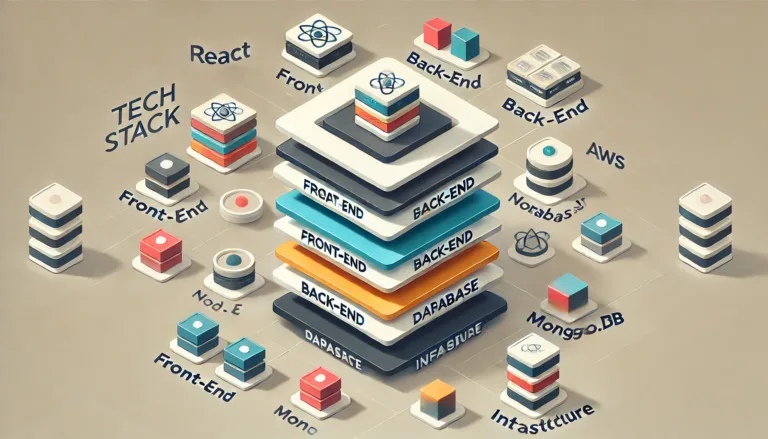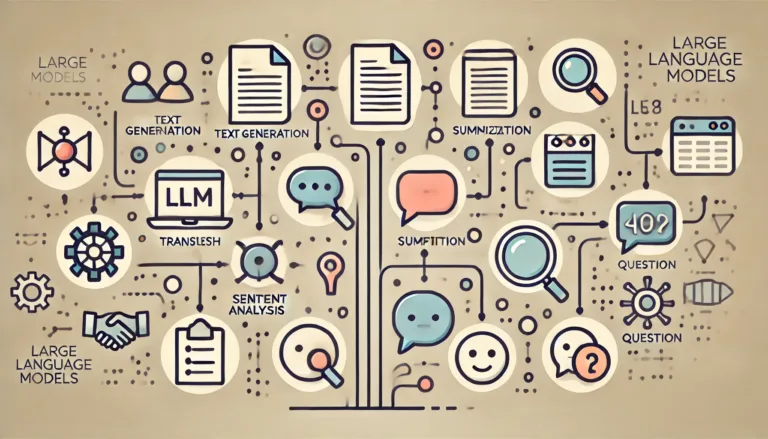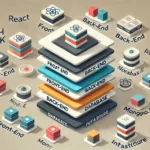Day-to-Day Grind of Software Engineers
Cooking Up Quality Software Systems
As a software engineer, your main gig is whipping up sturdy and swift software systems. You’ll be cooking up blueprints that handle everything users throw at it without cracking under pressure. Armed with your engineering prowess and coding smarts, you’ll be crafting stuff that fits what users want like a glove. Your daily menu might include:
- Requirement snooping: Figuring out and jotting down what the end user really needs.
- System blueprinting: Mapping out the structure and parts of the system.
- Prototyping: Building early versions of the software to test out ideas and get feedback.
Giving New Programs a Good Shakedown
Another chunky slice of the job is putting fresh software through the wringer. You’re making sure it does what it’s supposed to without falling flat on its face. Key moves include:
- Unit Testing: Checking individual pieces to see if they do their thing right.
- Integration Testing: Making sure all the pieces play nice together.
- Performance Testing: Seeing how the software holds up under different situations to make sure it’s speedy and efficient.
Let’s break down a typical week’s testing grind:
| Testing Hustle | Time Spent (Hours/Week) |
|---|---|
| Unit Testing | 10 |
| Integration Testing | 12 |
| Performance Testing | 8 |
Juicing Up Speed and Scalability
In the game of software engineering, speed and scalability are your bread and butter. You’ve got to make sure your software handles an avalanche of users and data without tapping out. Your day-to-day hustle might look like:
- Code tuning: Tightening up the code to make everything zip along faster.
- Load testing: Mimicking a horde of users to see if the software stays solid under pressure.
- Database sprucing: Tweaking the database to manage huge data piles swiftly.
Want more tips on making your software zoom? Check out our page on remote software engineering jobs.
By ticking off these tasks, you’re making sure the software isn’t just running—it’s sprinting, scaling, and meeting user demands like a champ. Whether you’re new to the game or a seasoned player, grasping these responsibilities is crucial to hitting it out of the park in your role. Ready to level up your career? Dive into software engineering internships for some real-deal experience.
Software Engineering Specialties
Jumping into software engineering? Cool. But you gotta know the lay of the land. Let’s break it down: you’ve got systems engineers and application developers. Two very different roles, but both are super important.
Systems Engineers vs. App Developers
These two are like Batman and Iron Man—both heroes, different gadgets. Systems engineers keep everything running smoothly behind the scenes, while app developers create the cool stuff you actually use.
Systems Engineers
Systems engineers are the unsung heroes. They build and manage computer systems and networks, making sure everything talks to each other and stays secure. Their daily grind includes:
- Designing systems that fit the company’s needs.
- Keeping track of all system configurations.
- Adding new tech and security measures to keep the bad guys out.
- Ensuring systems are reliable and can grow with the company.
Application Developers
App developers are the creative minds behind the software you use every day. They write, design, and maintain code to build those nifty applications you just can’t live without. They usually:
- Write and maintain super clean, efficient code.
- Work with designers and product managers to create app features.
- Test and debug apps to make sure they run like a dream.
- Optimize the app for better performance and scalability.
| Role | Focus | Responsibilities |
|---|---|---|
| Systems Engineer | Computer Systems & Networks | Build systems, document configs, update tech |
| Application Developer | User Software Apps | Write code, collaborate on design, test & debug |
Figuring out where you fit best can help steer your career in the right direction. Both paths are essential in tech and come with plenty of chances, from software engineering internships to senior software engineer roles. If you’re all about that work-from-home life, check out remote software engineering jobs.
Choosing which specialty in software engineering suits you can make a huge difference in your career. Whether you’re into managing complex systems or creating awesome apps, both tracks offer exciting challenges and the chance for career growth.
Must-Have Skills for Software Engineers
Rocking it as a software engineer means having a blend of tech know-how and soft skills. Here’s what you really need to thrive in this field.
Knack for Coding Languages
You gotta know your way around a slew of coding languages. Python, Java, C, C++, and Scala are your bread and butter, each shines in its own way.
- Java: Ideal for web and mobile applications. It’s super secure and works on any platform.
- JavaScript: A favorite for web development. Makes updates and maintenance easier and goes beyond the browser with Node.js.
| Programming Language | Best Use |
|---|---|
| Python | Data Science, Machine Learning |
| Java | Web and Mobile Apps |
| C, C++ | System Programming, Gaming |
| JavaScript | Web Development |
Want to put these skills to use? Check out our remote software engineering jobs and get cracking.
Agile and Scrum Savvy
Knowing Agile and Scrum methodologies isn’t just nice-to-have, it’s a must. These keep your projects on the rails while you iterate and improve as you go.
- Agile: Think continuous improvement and teamwork.
- Scrum: A framework under Agile that helps teams get their act together.
Tools like version control systems and IDEs (Integrated Development Environments) are also key. They help keep everything organized and running smoothly.
Dive into our software engineering internships to get hands-on with these practices.
Big on Cloud Computing
Cloud computing? Yep, that’s another feather in your cap. Knowing AWS, Microsoft Azure, and Google Cloud can set you apart.
- AWS: Tons of services and tools available.
- Microsoft Azure: A bundle of integrated cloud services.
- Google Cloud: Scalable and rock-solid.
Understanding how to deploy and manage apps in the cloud is huge. You’ll need to get familiar with database architecture, security protocols, and network setups.
Looking for roles where cloud skills are a must? Browse our senior software engineer positions.
Mastering these skills will set you up for a smashing career in software engineering. Hop in and start making waves!
Software Engineers in Product Management
Understanding how software engineers and product managers work together is crucial for getting a handle on what a software engineer does every day. Here’s my take on how this teamwork plays out and how it shapes product design.
Working with Product Managers
One of the most important parts of a software engineer’s job is working with product managers. From my own experience, this teamwork ensures the product is both technically sound and efficient. Product managers bring in the company goals, market insights, customer feedback, and technical feasibility and share it with us engineers (Gocious). Without this teamwork, we wouldn’t make smart decisions in product development.
To make things work smoothly, it’s vital for everyone to recognize the different skills each person brings to the table. I often find myself working closely with testers, other engineers, and product managers to make sure the product hits its targets (LaunchNotes).
Check out this overview of how we share tasks:
| Tasks | Engineers | Product Managers |
|---|---|---|
| Technical Feasibility | ✔️ | |
| Market Research Insights | ✔️ | |
| Setting Development Goals | ✔️ | ✔️ |
| Customer Feedback Integration | ✔️ | |
| Operational Efficiency | ✔️ | |
| Choosing Development Methods | ✔️ |
Building the Product
When it comes to creating the product, software engineers like me are deeply involved. We decide on the tech stack, design the software architecture, and plan how everything will be developed. We also play a big role in shaping the user interface (UI) and user experience (UX) (LaunchNotes).
As part of the team, I’m in charge of writing the code that makes the product work as intended. This includes picking the right development tools and methods to keep the project on schedule and within budget. By collaborating with product managers, I make sure our technical work aligns with business needs and user expectations.
Here’s a quick look at my main tasks in product design:
| Task | What It Means |
|---|---|
| Tech Stack Selection | Picking the right programming languages and frameworks. |
| Software Architecture | Laying out the blueprint of the software. |
| Development Planning | Setting timelines and deliverables. |
| UI/UX Input | Helping design the user interface and experience. |
| Coding & Implementation | Writing the code that brings the product to life. |
Understanding these roles and how we work together helps clarify what makes a [software engineer’s responsibilities] so varied and essential. Whether you’re looking at software engineering internships or aiming for a senior software engineer job, getting a grip on these aspects can really boost your career.
What’s in the Life of a Software Engineer?
Being a software engineer is a mixed bag of coding, solving puzzles, and making users’ lives easier. Let’s break down what keeps me busy.
Figuring Out What Users Want
Knowing what users need is where it all starts. Picture this: I sit down for a chat, run some surveys, and gather tons of feedback. I sift through all this to pin down exactly what people want. Nothing fancy, just straight-up figuring out how to make their lives easier one line of code at a time.
| What I Do | How I Do It |
|---|---|
| Figuring Out What Users Want | Chats, Surveys, Feedback, Analysis |
Check out the lowdown on senior software engineer jobs.
Keeping Things Safe and Sound
Security’s my middle name. I’m always on the lookout for bugs and threats. It’s a non-stop game of cat and mouse, performing code checks and staying ahead of the curve with security updates. A secure code means happy users who trust our software.
| What I Do | How I Do It |
|---|---|
| Keeping Things Safe and Sound | Code Checks, Threat Detection, Updates |
Need more insights? Have a peek at software engineering internships.
Coding and More Coding… and Fixing Bugs
Coding is like breathing in this job. Writing neat, clear, and efficient code is the name of the game. After writing, there’s a lot of testing and fixing to make sure everything runs smoothly. And it doesn’t end there – tinkering with existing code to keep up with new trends and requirements is constant.
| What I Do | How I Do It |
|---|---|
| Coding and More Coding | Writing Code, Testing, Debugging, Maintaining Code |
Wondering about flexible gigs? Check out remote software engineering jobs.
Juggling these tasks is part of what makes a software engineer’s job so dynamic and fun. To up your game, look into software engineering internships – they’re a great way to nail down these skills.
Qualifications and Salaries
Thinking about becoming a software engineer? Let’s chat about what you need and what you can earn.
Education Requirements
To dive into software engineering, you generally need some solid training. Sure, some folks get in with self-taught skills or coding bootcamps, but most employers like to see a bachelor’s degree in computer science or something similar.
Here’s the scoop on what you’ll need:
- A bachelor’s degree in computer science or software engineering
- Skills in coding languages like Python, Java, and C++
- Familiarity with development methodologies like Agile and Scrum
Want to stand out? Consider boosting your resume with a master’s degree or certifications in hot areas like cloud computing or cybersecurity.
Median Software Engineer Salary
Now let’s talk money. Software engineering can be a sweet gig financially. According to 2023 figures, here’s what you could be looking at:
| Job Title | Median Annual Salary | Specific Industry Salary |
|---|---|---|
| Software Engineer | $124,200 | $132,270 |
| Software Developer | $132,270 | $143,210 (Software Publishing) |
Data from the US Bureau of Labor Statistics and Computer Science.
The job market looks promising too. The Bureau of Labor Statistics says software engineering jobs will grow by 25% by 2032 (Computer Science).
Want to know more about getting that dream job? Check out our guides on software engineering internships or snagging remote software engineering jobs. And if you’re eyeing top-tier roles, peek at opportunities for senior software engineer positions.









